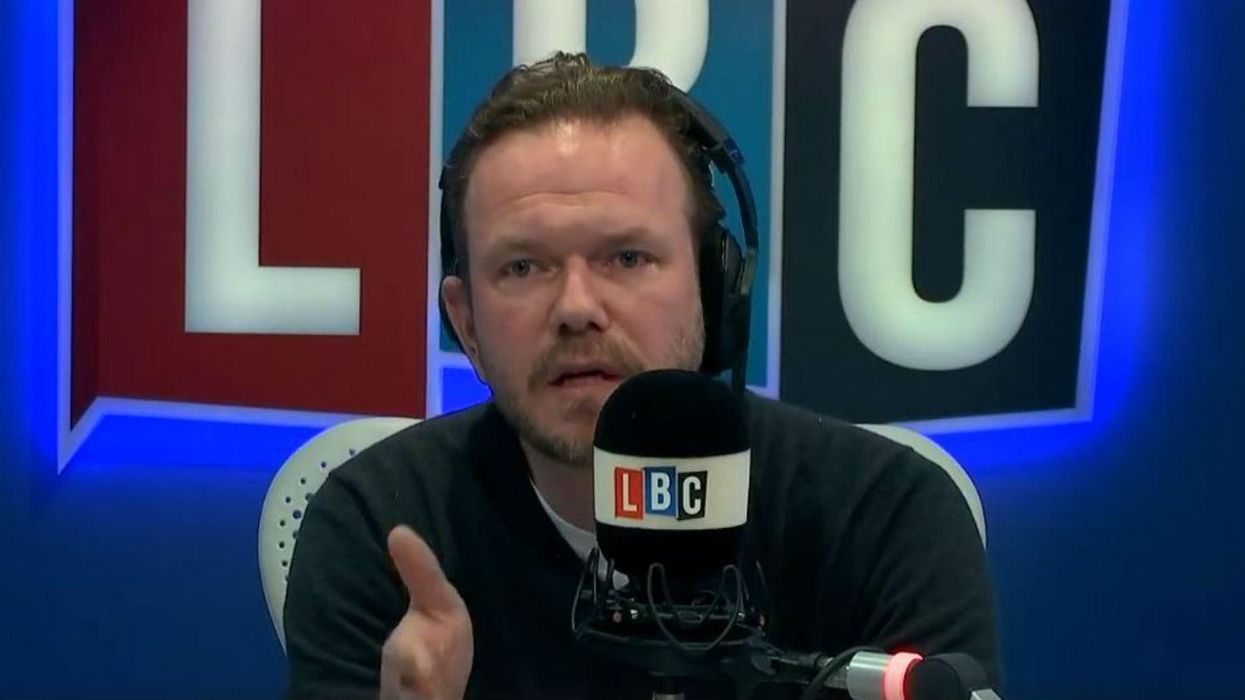News
Evan Bartlett
Nov 23, 2016

Editor's note: Thomas Mair has today been found guilty of the murder of the Labour MP Jo Cox. His cowardly attack came just a week before the referendum on Britain's membership of the EU. At his trial, the court heard how Mair shouted 'this is for Britain', 'keep Britain independent' and 'Britain first'. Following his conviction, it is worth revisiting LBC radio host James O'Brien's monologue about Cox's murder (originally published on 17 June) and the ugly political climate that has emerged in this country in the past 12 months.
Following the killing of Labour MP Jo Cox on Thursday afternoon, people from all across the country have been trying to make sense of what happened.
While the exact facts around the incident are still unconfirmed, there has been strong debate about whether it is too soon to politicise such a tragic event or whether the event is inherently political.
In written form, few have contextualised her death better than Spectator columnist Alex Massie:
Sometimes rhetoric has consequences. If you spend days, weeks, months, years telling people they are under threat, that their country has been stolen from them, that they have been betrayed and sold down the river, that their birthright has been pilfered, that their problem is they’re too slow to realise any of this is happening, that their problem is they’re not sufficiently mad as hell, then at some point, in some place, something or someone is going to snap. And then something terrible is going to happen.
In spoken form, that mantle was taken up by LBC radio host, who on Friday morning unloaded a passionate three-minute monologue about the current state of political discourse in Britain:
Is it even vaguely possible that a man today could have been pushed to the brink of murder by political debate and the political situation?
I don't care where you come from. I don't care who you vote for. That's the question I've got. Can you conceive of circumstances in which somebody living in Britain today could be pushed to the point where they contemplate this sort of conduct?
And I'm afraid to tell you that I can.
As the EU referendum campaign reaches its final days, and both sides continue to become ever more extreme in their argument and debate, perhaps everyone would do well to bear O'Brien's words in mind.
If I was reading my newspaper every single morning and being told that my very existence was under siege from people I've never met and never seen but keep getting told are coming here in their hordes...
To hear that everybody coming here is a rapist, and they've got their eyes on our women and we've got no chance whatsoever of protecting ourselves and unless we do this or do that... then we're all doomed.
Every time I got out of bed, I think I'd begin to believe it. I think. If I didn't have the knowledge, the insight, and the education to know that it is not true.
Without attacking any individual or party, O'Brien tears into those who have stoked fear, anger and xenophobia in Britain.
We want our country back from whom? We want our country back from when? We want our country back how?
Convince me if you can that political debate in Britain in the last couple of years has not created an environment in which we find it easy to believe or possible to believe that this sort of violence, this sort of terrorism could unfold on our streets.
And for those who argue that Cox's senseless murder shouldn't be spoken about in these terms, O'Brien has this to say:
What is the point of having these conversations? What is the point of having these conversations if we're not allowed to say what we want and express what we fear?
Why is it on days like today that people who have spent the last decade banging on about freedom of speech and being able to speak your mind without being shot down in flames suddenly think everybody else who disagrees with them should shut up and go away?
What do we learn from this death? As is being reported it appears to have been committed at least in part for political reasons.
'How dare you politicise the death of a politician who has been killed for what appear to be political reasons,' say some people.
'It's a mental health issue, it's not an immigration issue, it's not a political issue.'
Well, I would come with you on that journey if you'd tried to go down the same road when Lee Rigby was murdered by a paranoid schizophrenic.
More: People are sharing Jo Cox's poignant words about child refugees
Top 100
The Conversation (0)













